South Korea’s impeached President Yoon Suk Yeol was detained on Wednesday in a dramatic law enforcement operation at the presidential compound. The move follows weeks of defiance as Yoon resisted attempts to question him over his controversial martial law declaration last month.
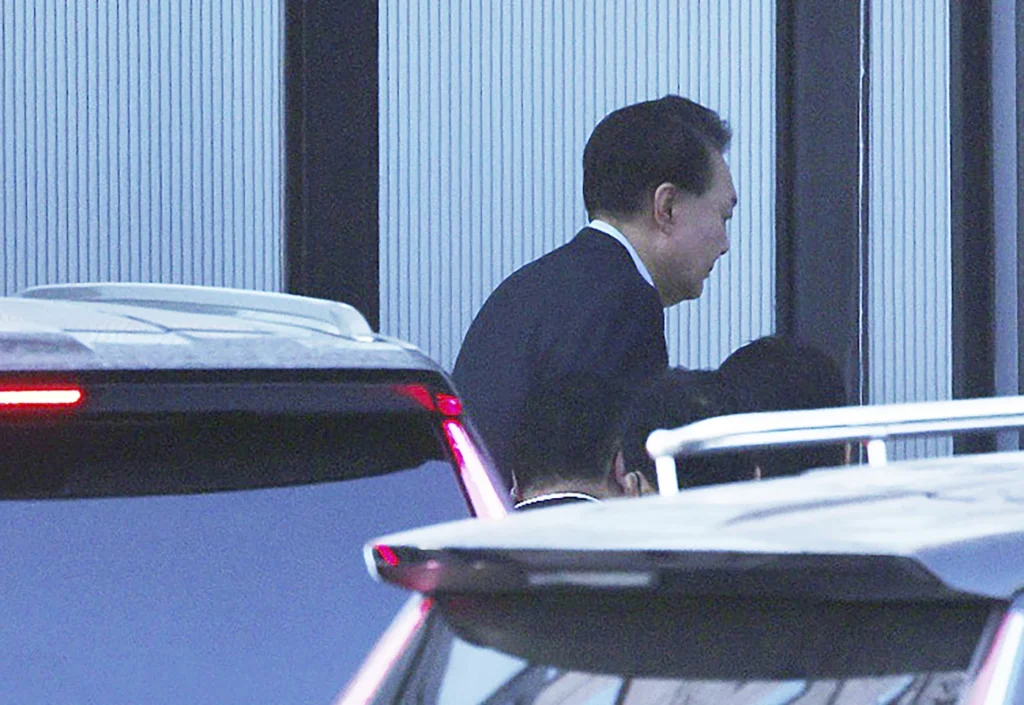
Yoon complied with the detention warrant after an extended standoff. In a video message recorded before being escorted to the anti-corruption agency’s headquarters, Yoon denounced the “collapse of the rule of law” in the country. His legal team had sought to prevent the detention by offering voluntary cooperation, but the agency rejected their appeals.
The Corruption Investigation Office for High-Ranking Officials (CIO) confirmed Yoon’s detention, which came after hundreds of law enforcement officers stormed the presidential compound in Seoul. This was the agency’s second attempt to bring Yoon into custody, following a failed effort earlier this month.
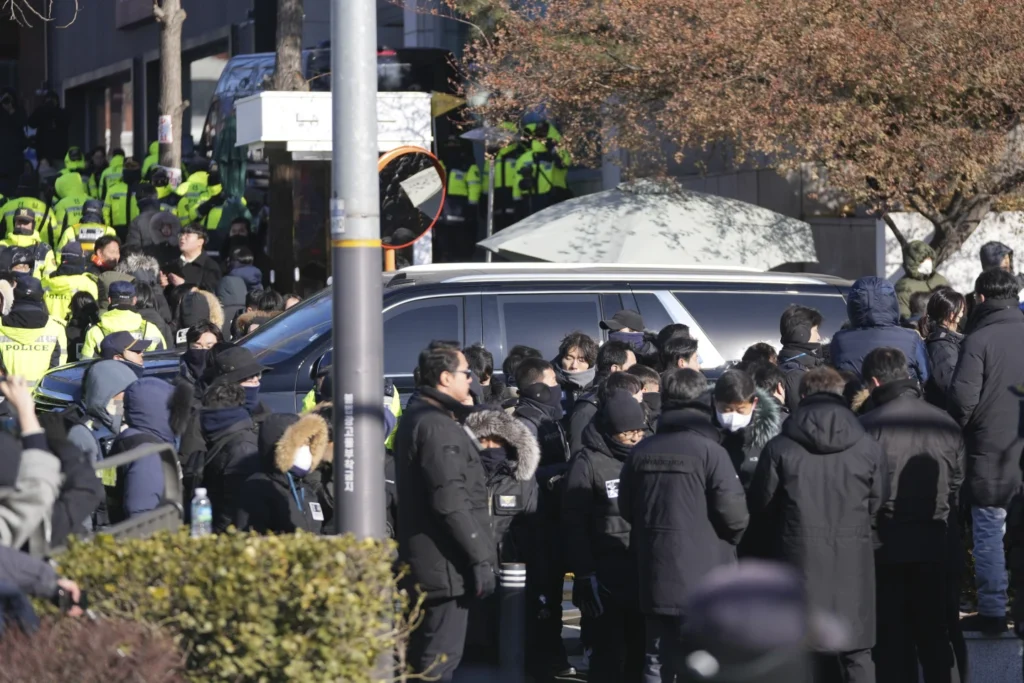
In a high-security operation, a convoy of black SUVs, flanked by police escorts, transported Yoon to the CIO’s office in Gwacheon, a nearby city. Yoon had been sheltering in the Hannam-dong presidential residence for weeks, pledging to “fight to the end” against what he called an illegitimate effort to oust him.
The investigation centers on Yoon’s December 3 declaration of martial law, which saw troops deployed around the National Assembly. The move was widely criticized as an attempt to suppress an “anti-state” opposition, which holds a legislative majority. Yoon argued the declaration was a necessary act of governance.
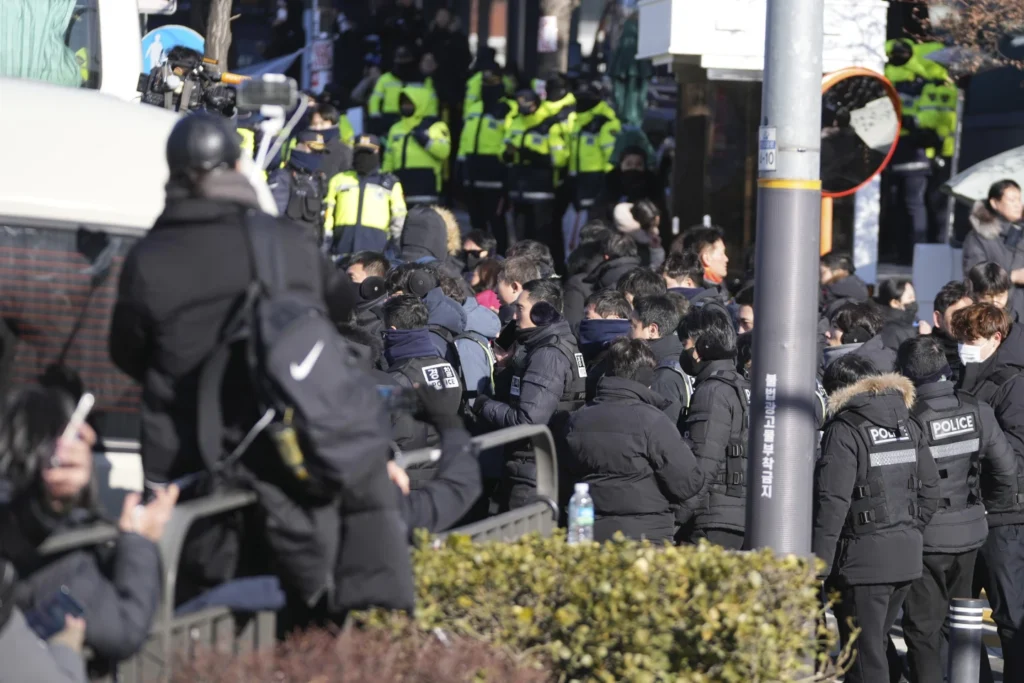
The martial law order was quickly overturned by lawmakers, and Yoon was impeached on December 14. His presidential powers were suspended pending a decision by the Constitutional Court on whether to formally remove him from office.
The CIO, in collaboration with police and military investigators, is probing whether Yoon’s actions constituted an attempted rebellion. Yoon repeatedly ignored summons for questioning, prompting the agency to escalate its efforts.
The operation at the presidential compound involved intense coordination. Law enforcement officers used ladders to bypass barricades set up by Yoon’s security team, which had fortified the compound with barbed wire and rows of buses. After an hours-long standoff, investigators gained access to the residence, with some officers entering through a security door near Yoon’s building.
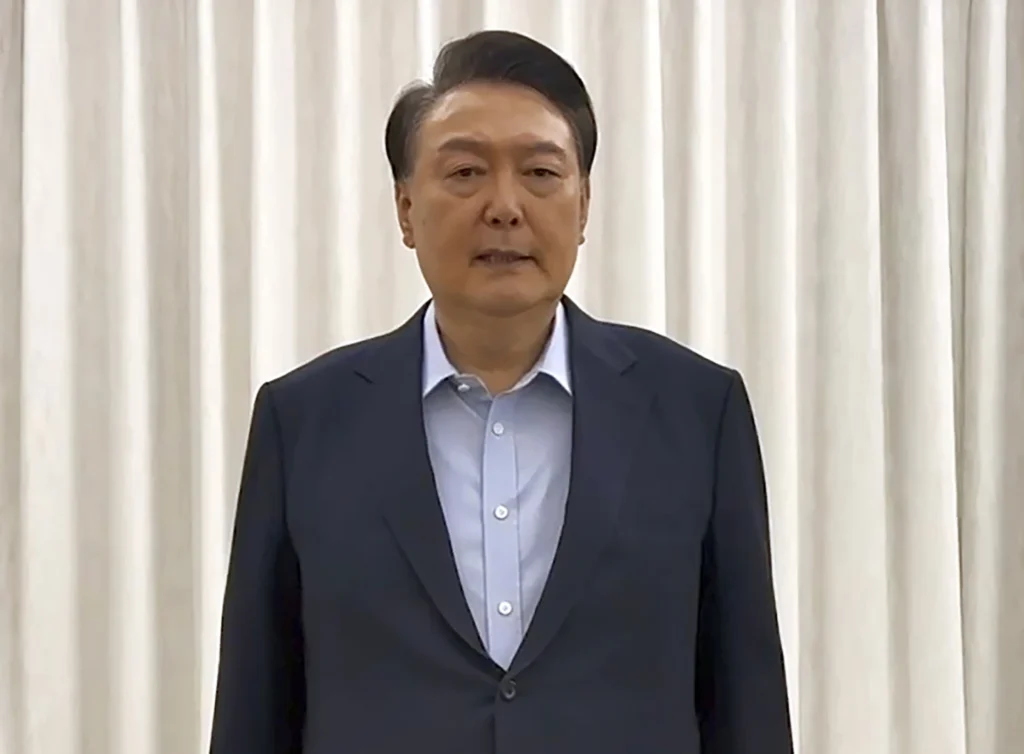
The presidential security service, tasked with protecting Yoon, initially resisted the operation but eventually removed vehicles blocking the compound’s gates. Despite the court-issued warrant, the security service had cited obligations to protect the impeached president.
If investigators formally arrest Yoon, they will seek court approval to extend his detention beyond 48 hours. Otherwise, he will be released. Yoon’s lawyers have challenged the validity of the detention warrant, citing legal protections for locations linked to military secrets.
Deputy Prime Minister Choi Sang-mok, the acting leader, urged restraint from all parties, calling for the avoidance of “physical clashes.” Meanwhile, Yoon’s People Power Party held rallies near the residence, denouncing the detention as unlawful. The opposition Democratic Party, which led Yoon’s impeachment, called for full cooperation with law enforcement.
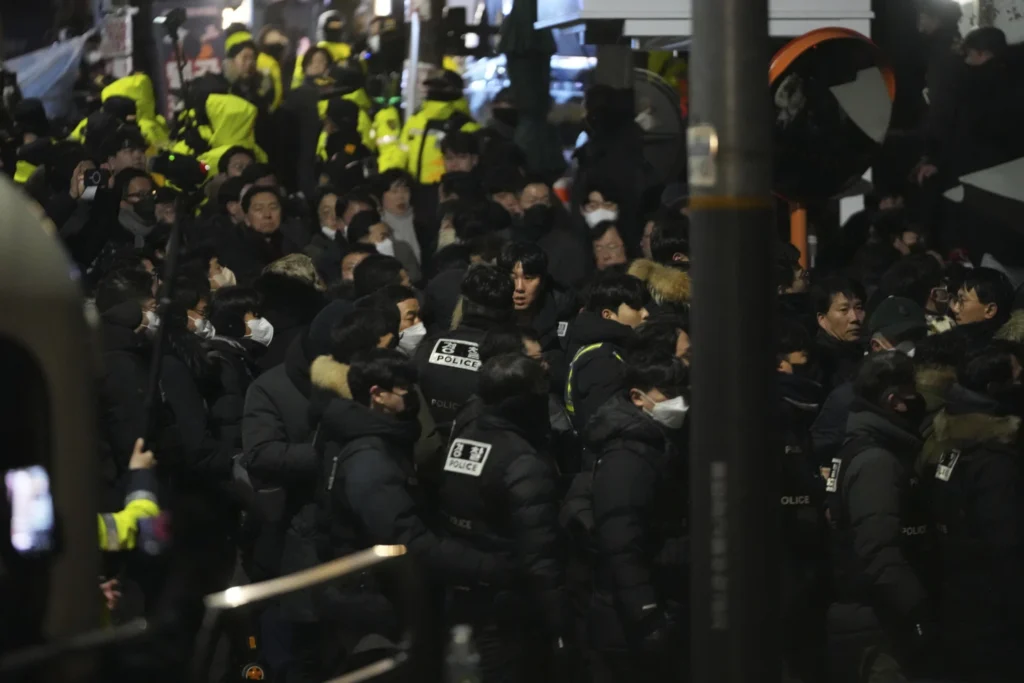
Thousands of police officers monitored protests from both supporters and critics of Yoon, underscoring the volatile situation.
The Constitutional Court began its hearing on Yoon’s impeachment on Tuesday, but Yoon refused to attend. The next session is scheduled for Thursday, with proceedings set to continue regardless of his participation. The court’s decision will determine whether Yoon is removed from office or reinstated.
Yoon’s detention marks a pivotal moment in South Korea’s political history, reflecting the nation’s struggle to balance accountability and governance. The situation has drawn widespread attention domestically and internationally, with the outcome likely to shape the country’s political landscape for years to come.



